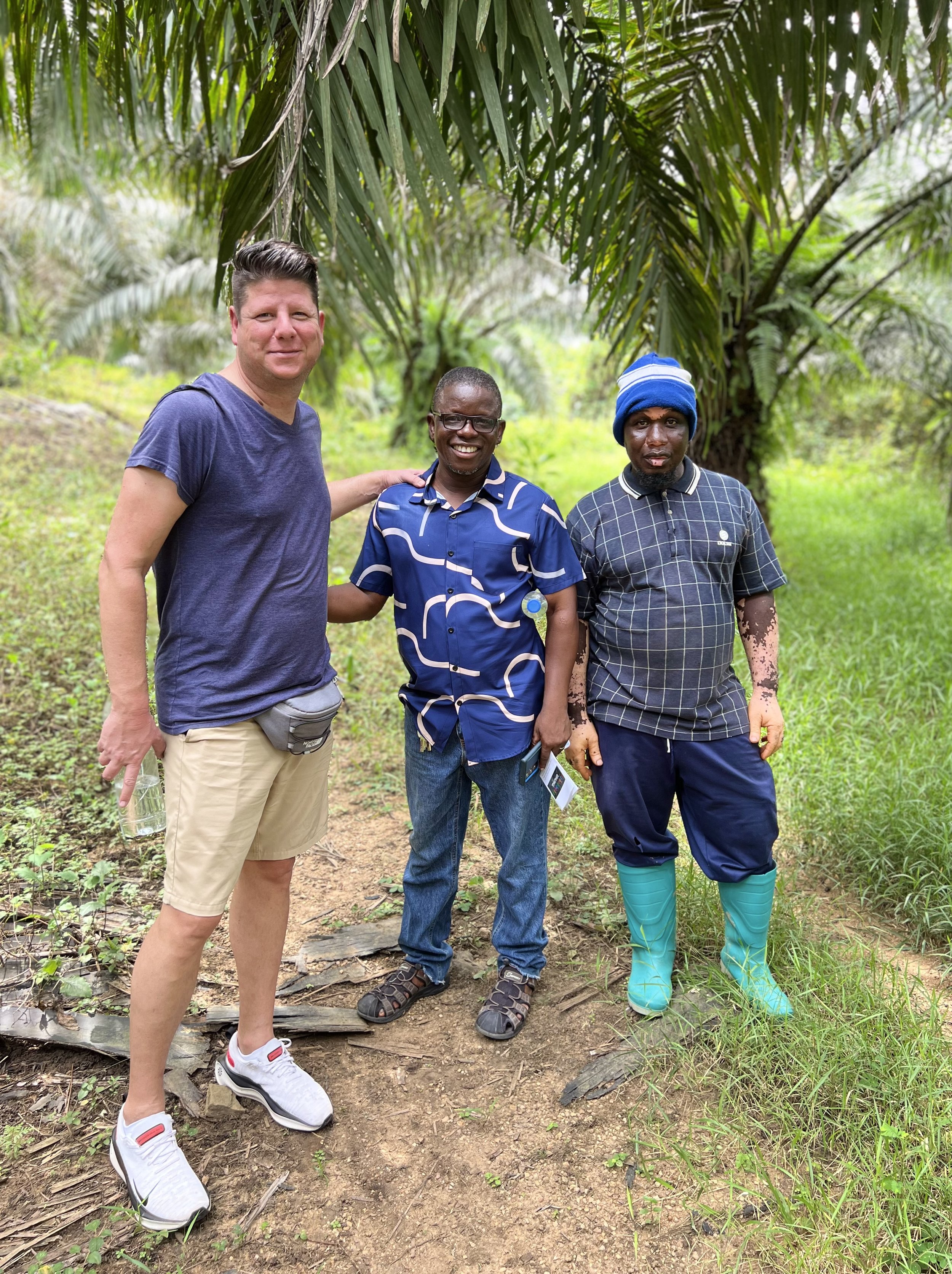Empowering Liberian communities through sustainable farming and the love of Christ.
Why Agriculture Matters in Liberia
Food insecurity is one of the most urgent issues facing Liberia. Nearly one-third of the population is undernourished, and many families lack access to the land or resources needed to grow their own food.
At One Body One Hope, we believe the gospel transforms both souls and systems. That’s why we invest in sustainable agriculture—empowering local farmers, fighting hunger, and building stronger communities.
From Vision to Harvest — The Harbel Farm Story
In 2013, we began with just 8 acres. Thanks to generous donors like you, we expanded by purchasing 144 additional acres in 2015. What began as a dream is now a thriving agricultural hub.
What We Grow
60 acres of palm
25 acres of cocoa
8 acres of lowland crops: rice, plantains, and vegetables
Goat livestock for meat and resale
Who We Employ
28 Liberian workers, all earning a livable wage
Employees support entire families with their income
Impact That Extends Beyond the Fields
The farm doesn’t just feed bodies—it’s part of a bigger ecosystem of transformation.
A Christian school now educates children in the nearby village.
A church is planting seeds of hope through the gospel.
A bridge, built through this initiative, connects the community to broader Liberia.
This is how development rooted in dignity and discipleship grows lasting change.
“We are trying to plant crops that will be able to help us feed our members and our congregation so that we don’t need to ask people to give up money for food. They can give up money for other things, for ministry expansions, but for food we only need help so that we can expand the work.”
Join the Mission of Redevelopment
Building a commercial-scale farm in a severely under-resourced country takes vision, persistence, and partnership. At Harbel Farm, we’re learning every day what it means to rebuild from the ground up—creating systems that feed families, provide stable jobs, and strengthen entire communities.
Your monthly or one-time donation makes a direct impact:
Employ and equip Liberian farmers
Expand farmland, purchase tools, and support new crops
Invest in long-term infrastructure for sustainable growth
$100/month supports a farmer and their entire family
This is more than farming. It’s a reflection of our faith in action—investing in the kind of redevelopment that brings lasting opportunity to people and places the world too often overlooks. Will you join us?
Our dream for this agricultural project is to grow much food to be able to help the Christian community and to help the children of Liberia.
- Pastor Emmanuel Bimba
Questions about our Agriculture Programs?
Fill out this form and someone from One Body One Hope will be in contact.
Farm Purchase - 2015
Rice Mill Project
















